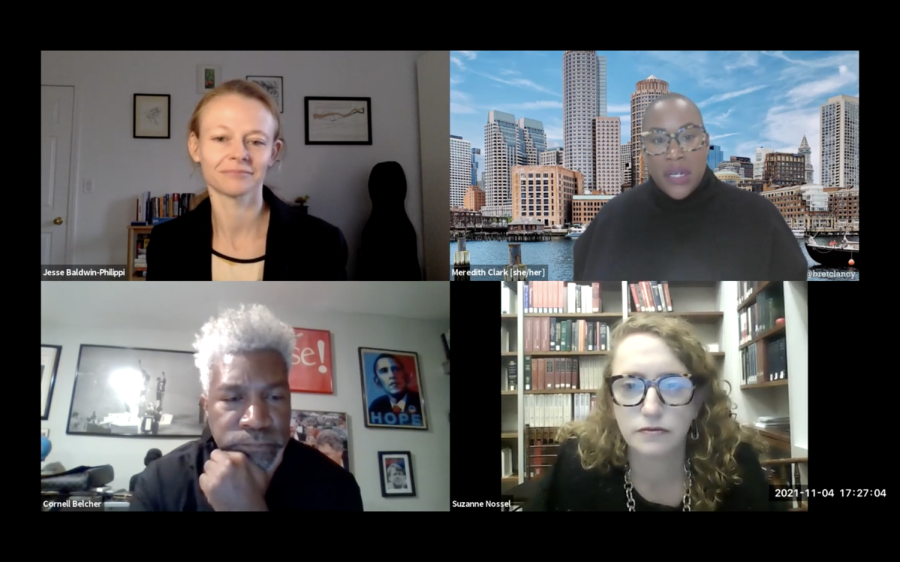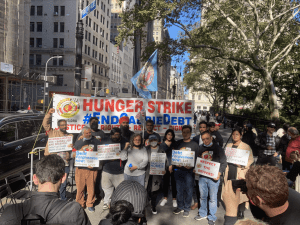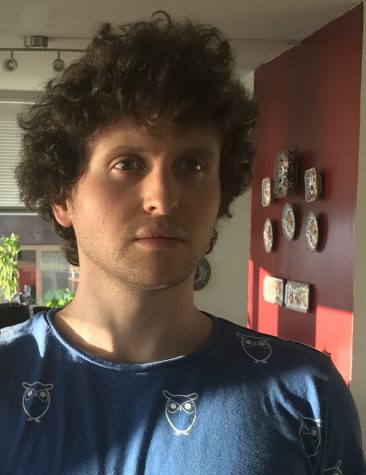Dave Chappelle Dominates Conversation at Cancel Culture Panel
Fordham’s panel on cancel culture led to a discussion of the controversial comedian
ZOOM
The panel was hosted on Zoom and had 140 attendees who heard about cancel culture and free speech.
November 22, 2021
Fordham hosted its third installment of the “Speech Acts Series” on Nov. 4, with a panel titled “‘Cancel Culture’ and the Consequences of Our Words.”
Because the event was organized using a short-term loan of a Zoom webinar license from Fordham IT, the list of attendees was lost by the provost’s office, so student participants could not be reached for comment.
The subject that dominated the panel’s 90-minute discussion was not free speech on college campuses so much as Dave Chappelle’s recent Netflix special.
Moderator Jessica Baldwin-Philippi, a Fordham professor, began the conversation by introducing the three panelists: Cornell Belcher, president of Brilliant Corners Research & Strategies, who has a long history of participation in Democratic Party politics; Meredith Clark, an associate professor of arts and media design at Northeastern University specializing in social media; and Suzanne F. Nossel, the chief executive officer of PEN America, a leading organization in areas of human rights and free expression.
“I shy away from the term ‘cancel culture’ because the ‘culture’ part of it speaks to a larger meaning that isn’t well interrogated.” Meredith Clark, associate professor of arts and media design at Northeastern University
Baldwin-Philippi assured the attendees that they would have the opportunity to ask questions via the Q&A Zoom button at the bottom of the screen.
Though 275 people registered for the webinar, only 140 attended. Because of the large number of attendees, Baldwin-Phillippi explained, “I may take some creative license with your questions to get as many topics answered as we can.”
Clark spoke first, stating that including the word “culture” in “cancel culture” is potentially racist. She explained that participants on “Black Twitter,” an informal community that connects Black Twitter users, sometimes use the platform to demand racial accountability, which she connected to the topic of cancel culture.
The term “cancel culture” is elastic and its overall meaning is vague.
“The assumption that there’s a ‘culture’ around (cancel culture) really does speak to some racialized origins, it throws back to the idea of the culture wars,” Clark said. “So I shy away from the term ‘cancel culture’ because the ‘culture’ part of it speaks to a larger meaning that isn’t well interrogated.”
Nossel stated that the term “cancel culture” is elastic and its overall meaning is vague. She proposed a distinction between “censorship,” conducted by a government, and “cancellation,” conducted by people.
Belcher said “politics of grievance” are as old as America itself. What is dramatically different today is the vehicle of social media and the power of that medium to mobilize and spread condemnation. “The power and politics of cancel culture is within the grievance continuum, because you can always find a victim and you can always make yourself a victim,” Belcher said.
Nossel discussed right-wing provocateurs who intentionally try to be canceled to generate publicity. Clark explained the tactic called “exposure trolling,” where someone is intentionally offensive in order to draw attention to themselves.
Nossel referenced the campus tours of Milo Yiannopoulos and Richard B. Spencer, saying that being canceled is part of their game plan. After being canceled, “they can claim their first amendment rights were being impinged upon, that they’re a great martyr to free speech; they can go fundraise; it’s frontpage news,” Nossel said.
After a half-hour of discussion, Baldwin-Philippi saw Dave Chappelle mentioned by more than one audience member and asked the panelists to comment. Belcher said, “Dave Chappelle may have done more to kill this current iteration of cancel culture than anyone else has.”
“Free speech defenders have historically been hesitant to acknowledge that speech may cause harm.” Suzanne F. Nossel
In response to Chapelle’s past remarks about trans people, Clark commented: “The trans communities that Chappelle harms are very real, and the harm is very real.” Chappelle has recently been the subject of controversy stemming from his Netflix special “The Closer,” in which he declared “gender is a fact” and supported the controversial “Harry Potter” author, J.K. Rowling.
“Free speech defenders have historically been hesitant to acknowledge that speech may cause harm,” Nossel said. “It’s because they’re fearful to opening the door to censorship … (but) I actually think the defense of free speech is more persuasive when we acknowledge that words can cause harm.”
Tying it together, Nossel continued, “The Dave Chappelle case is a complex one … I think he does two things. First of all, he talks about trans people in a way that really does show his profound discomfort with them in a way that might be unacceptable if you were talking about Black people or Jewish people. At the same time, he talks about how he overcame that, how he overcame his own prejudices and bigotry.”
Nossel explained how the Chappelle special could cause harm by normalizing feelings of aversion, but might be beneficial in helping bring those feelings out into the realm of public discourse.
“There’s a lot to be gleaned from open conversation with other folks even on a topic as controversial as this one.” Meredith Clark
Dave Chappelle wasn’t the only subject of conversation, but he framed the discussion and directly led to the panel’s consideration of “exposure trolling,” which brought up the topic of white nationalists, provocateurs, and chaos agents who abuse their freedom of speech. At one point Clark even compared Chappelle’s shock and awe tactics to those of former President Donald Trump. Even though Dave Chappelle was spoken about for less than ten minutes, ensuing emotions and ideas sustained the webinar.
When reached for comment, Meredith Clark called the experience of being on the panel a pretty standard one, although she admitted wishing it could be more opened up to other voices.
“For me, anytime there’s an opportunity to talk about the work that I do, I always enjoy actually talking to others, members of the audience, people who are watching online,” she said. “There’s a lot to be gleaned from open conversation with other folks even on a topic as controversial as this one.”
Although this was the last event of the fall semester, Fordham will be hosting more during the spring. The first event of the spring semester, titled “The Promise and Limits of Our First Amendment” will be held on Jan. 26.














